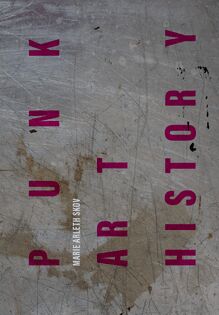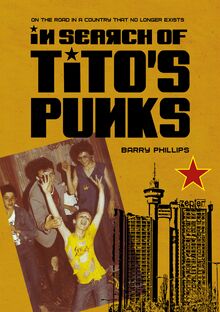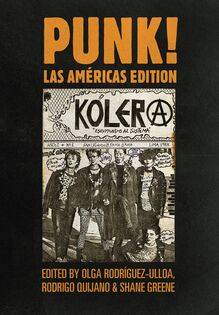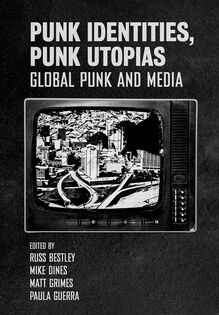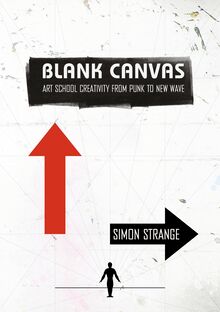-
 Univers
Univers
-
 Ebooks
Ebooks
-
 Livres audio
Livres audio
-
 Presse
Presse
-
 Podcasts
Podcasts
-
 BD
BD
-
 Documents
Documents
-
- Cours
- Révisions
- Ressources pédagogiques
- Sciences de l’éducation
- Manuels scolaires
- Langues
- Travaux de classe
- Annales de BEP
- Etudes supérieures
- Maternelle et primaire
- Fiches de lecture
- Orientation scolaire
- Méthodologie
- Corrigés de devoir
- Annales d’examens et concours
- Annales du bac
- Annales du brevet
- Rapports de stage
La lecture à portée de main
Vous pourrez modifier la taille du texte de cet ouvrage
Découvre YouScribe en t'inscrivant gratuitement
Je m'inscrisDécouvre YouScribe en t'inscrivant gratuitement
Je m'inscrisEn savoir plus
Vous pourrez modifier la taille du texte de cet ouvrage
En savoir plus

Description
With practitioners, management and policy makers continuing to critically examine pedagogical practice in post 16 education, the need to engage in conversations concerning the exact nature of this practice remains extremely pertinent.
This collection develops existing work on punk pedagogies by connecting up theory and practices whilst simultaneously disrupting current accepted approaches to pedagogy in post 16 education.
The insights generated within the various settings outlined in this book – further education, higher education, migrant education, zine workshops, community education and for speakers of other languages – are relevant beyond those contexts. They are applicable to a wide range of disciplines, settings, teaching and learning styles.
Contributions from Ipsita Chatterjea, Mike Dines, Asya Draganova, Jon Evans, Muhammad Fakhran al Ramadhan, Michael Gratzke, Matt Grimes, Craig Hamilton, Michael Hepworth, Adam Hounslow-Eyre, Dave Kane, Nathan Kerrigan, Marco Milano, Ces Pearson, Sarah Raine, Katie Shaw, Francis Stewart, Iain Taylor, Dean Thiele, Elke Van dermijnsbrugge, L. Viner and Laura Way.
A new volume in the Global Punk series from Intellect.
Dedication
List of Figures
Acknowledgements
Introduction - Francis Stewart and Laura Way
Section 1: Resistance / Futures
Untitled - Jon Evans
Imagining Alternatives Futures in the Present: Punk Ethnography as a Futures Forming Practice in Education and Beyond - Elke Van dermijnsbrugge
The Future Is Unwritten: Joe Strummer, prophetic pedagogy and complexity as resistance - Adam Hounslow-Eyre
Mutual aid and the possibilities of resistance in further education – Katie Shaw
Questioning Punk As My Cultural Identity - Muhammad Fakhran al Ramadhan
Section 2: Inclusivity / Margins
Untitled – Ces Pearson
Teaching the Study of Religion without a Church: SORAAAD as Punk Pedagogy - Ipsita Chatterjea
Punk pedagogy in the language education of adult migrants to the UK? – Michael Hepworth
Gender and Disability in Punk Pedagogical Praxis - Francis Stewart & Laura Way
Learning On the Road: Stonehenge, Skool Bus and the Development of Alternative Pedagogies in the New Age Traveller Movement of the 1980s – Mike Dines
The Pencil Case – Dean Thiele
Section 3 - Zines
Untitled – L. Viner
Riffs: A Punk Pedagogy Manifesto - Asya Draganova, Matt Grimes, Craig Hamilton, Iain Taylor, David Kane & Sarah Raine
Success and productive failure in zine making with young people. A Hull case study into creative expression and relationships research - Michael Gratzke
Student Producers Ain’t No Losers! Zine-making in a sociology and criminology classroom – Nathan Kerrigan
The vertiginous pedagogy of fanzines – Marco Milano
Sujets
Informations
| Publié par | Intellect Books |
| Date de parution | 09 février 2023 |
| Nombre de lectures | 0 |
| EAN13 | 9781789387087 |
| Langue | English |
Informations légales : prix de location à la page 0,5000€. Cette information est donnée uniquement à titre indicatif conformément à la législation en vigueur.
Extrait
PUNK PEDAGOGIES IN PRACTICE
GLOBAL PUNK
Series editors: Russ Bestley and Mike Dines
Produced in collaboration with the Punk Scholars Network, the Global Punk series focuses on the development of contemporary global punk, reflecting upon its origins, aesthetics, identity, legacy, membership, and circulation. Critical approaches draw upon the interdisciplinary areas of (amongst others) cultural studies, art and design, sociology, musicology, and social sciences in order to develop a broad and inclusive picture of punk and punk-inspired subcultural developments around the globe. The series adopts an essentially analytical perspective, raising questions over the dissemination of punk scenes and subcultures and their form, structure, and contemporary cultural significance in the daily lives of an increasing number of people around the world. To propose a manuscript, or for more information about the series, please contact the series co-editors Russ Bestley and Mike Dines (contact details available at www.intellectbooks.com ).
The Punk Reader: Research Transmissions from the Local and the Global
Edited by Russ Bestley, Mike Dines, Alastair Gordon Paula Guerra
Trans-Global Punk Scenes: The Punk Reader Vol. 2
Edited by Russ Bestley, Mike Dines, Alastair Gordon Paula Guerra
Punk Identities, Punk Utopias: Global Punk and Media
Edited by Russ Bestley, Mike Dines, Matt Grimes Paula Guerra
PUNK! Las Am ricas Edition
Edited by Olga Rodr guez-Ulloa, Rodrigo Quijano Shane Greene
Blank Canvas: Art School Creativity From Punk to New Wave
Simon Strange
Punk Pedagogies in Practice: Disruptions and Connections
Edited by Francis Stewart Laura Way
Punk Art History: Artworks from the European No Future Generation
Marie Arleth Skov
In Search of Tito's Punks: On the Road in a Country That No Longer Exists
Barry Phillips
PUNK PEDAGOGIES IN PRACTICE
DISRUPTIONS AND CONNECTIONS
EDITED BY
FRANCIS STEWART LAURA WAY
First published in the UK in 2023 by Intellect, The Mill, Parnall Road, Fishponds, Bristol, BS16 3JG, UK
First published in the USA in 2023 by Intellect, The University of Chicago Press, 1427 E. 60th Street, Chicago, IL 60637, USA
Copyright 2023 Intellect Ltd
Produced in collaboration with the Punk Scholars Network
All rights reserved. No part of this publication may be reproduced, stored in a retrieval system or transmitted, in any form or by any means, electronic, mechanical, photocopying, recording or otherwise, without written permission.
A catalogue record for this book is available from the British Library.
Copy editor: MPS Limited
Cover and layout designer: Russ Bestley
Indexer: Laura Way
Production manager: Sophia Munyengeterwa
Typesetting: MPS Limited
Part of the Global Punk series
ISSN 2632-8305 | ONLINE ISSN 2632-8313
Print (hardback) ISBN 978-1-78938-706-3
ePDF ISBN 978-1-78938-707-0
ePUB ISBN 978-1-78938-708-7
To find out about all our publications, please visit our website. There you can subscribe to our e-newsletter, browse or download our current catalogue and buy any titles that are in print.
www.intellectbooks.com
This is a peer-reviewed publication.
DEDICATION
The editors wish to dedicate this book to bell hooks (1952-2021) for her decades of work on sexism, racism, and pedagogy that provided a feminist perspective on working class education and learning where little previously existed or was thought necessary. Her work uplifted Black women, Black students, Black scholarship, and Black education in a world that sought to diminish, denigrate, or appropriate their persons, experiences, and knowledge. The world she envisioned was a truly transformative one that, hooks said, was possible if we were willing to do the hard work of critique and change through love.
CONTENTS
ACKNOWLEDGMENTS
INTRODUCTION
FRANCIS STEWART AND LAURA WAY
SECTION 1: RESISTANCE/FUTURES
UNTITLED
JON EVANS
IMAGINING ALTERNATIVE FUTURES IN THE PRESENT: PUNK ETHNOGRAPHY AS A FUTURES FORMING PRACTICE IN EDUCATION AND BEYOND
ELKE VAN DERMIJNSBRUGGE
THE FUTURE IS UNWRITTEN: JOE STRUMMER, PROPHETIC PEDAGOGY, AND COMPLEXITY AS RESISTANCE
ADAM HOUNSLOW-EYRE
MUTUAL AID AND THE POSSIBILITIES OF RESISTANCE IN FURTHER EDUCATION
KATIE SHAW
QUESTIONING PUNK AS MY CULTURAL IDENTITY
MUHAMMAD FAKHRAN AL RAMADHAN
SECTION 2: INCLUSIVITY/MARGINS
UNTITLED
CES PEARSON
TEACHING THE STUDY OF RELIGION WITHOUT A CHURCH: SORAAAD AS PUNK PEDAGOGY
IPSITA CHATTERJEA
PUNK PEDAGOGY IN THE LANGUAGE EDUCATION OF ADULT MIGRANTS TO THE UK?
MICHAEL HEPWORTH
GENDER AND DISABILITY IN PUNK PEDAGOGICAL PRAXIS
FRANCIS STEWART AND LAURA WAY
LEARNING ON THE ROAD: STONEHENGE, SKOOL BUS, AND THE DEVELOPMENT OF ALTERNATIVE PEDAGOGIES IN THE NEW AGE TRAVELLER MOVEMENT OF THE 1980S
MIKE DINES
THE PENCIL CASE
DEAN THIELE
SECTION 3: ZINES
UNTITLED
L. VINER
RIFFS: A PUNK PEDAGOGY MANIFESTO
ASYA DRAGANOVA, MATT GRIMES, CRAIG HAMILTON, IAIN TAYLOR, DAVID KANE, AND SARAH RAINE
SUCCESS AND PRODUCTIVE FAILURE IN ZINE MAKING WITH YOUNG PEOPLE: A HULL CASE STUDY INTO CREATIVE EXPRESSION AND RELATIONSHIPS RESEARCH
MICHAEL GRATZKE
STUDENT PRODUCERS AIN T NO LOSERS! ZINE-MAKING IN A SOCIOLOGY AND CRIMINOLOGY CLASSROOM
NATHAN KERRIGAN
THE VERTIGINOUS PEDAGOGY OF FANZINES
MARCO MILANI
NOTES ON CONTRIBUTORS
INDEX
ACKNOWLEDGMENTS
The editors would like to thank all of those who gave their thoughts and time in developing the chapters and vignettes contained within this collection. With regard to the symposium, which prompted this publication, the editors thank Bishop Grosseteste University for their contribution towards funding, Mansions of the Future (Lincoln) for the use of their space, and also a huge thank you to all who spoke at and engaged with the event.
INTRODUCTION
FRANCIS STEWART AND LAURA WAY
Exploring punk and pedagogy/ies
Punk is a multi-faceted beast with influences from and within multiple communities, individuals and activities across the globe. Punk has no agreed upon definition, and cannot, or should not, be reduced to specific locales, politics, fashion, time, or even class.
Punk shapes - and is also shaped by - specific kinds of question askers, music makers, thought provokers, organizers, shit talkers, writers, artists, and teachers. At their best, the combinations of people, places, cultural practices, social relationships, art and ideas that co-constitute punk are rife with possibilities: creating new kinds of music or revelling in the ecstatic moments at the best shows; forging bonds of group solidarity and personal identity; carving out noncommercial spaces for free expression and the staking out of positions; and pushing people toward a participatory, bottom up view of culture.
(Furness 2012 : 10)
All of these factors can make a book on punk pedagogies seem something of a misnomer, but that could have more to do with assumptions around what punk is or should be. An issue within punk scholarship, and wider understandings of punk, is that of unquestioned assumptions about punk itself driven from a narrow frame of reference (Sabin 1999 : 2). This often results in an exclusion, or a re-scripting, of the experiences and contributions of women, LGBTQAI+ punks, disabled punks, Black punks, Indigenous punks, and punks of color. It also contributes to a short-sightedness in relation to the ways in which punk can, and does, act as a form of pedagogy for many within those excluded or re-scripted groups. For punks who have brought their punk identity, ethics, politics, and experiences to bear on their scholarship, there is an important conversation to be had around how that translates into the classroom, or other spaces of learning and education, in practical ways that can be replicated or adapted elsewhere in other contexts.
Punk pedagogies as a point of academic consideration within punk scholarship is by no means as developed as other themes or issues related to punk. Yet a developing body of work can be identified and this publication indeed serves to contribute to its continued development. Early thinking related to this notion of punk pedagogies can be traced back to the release of Six Weeks Critical Pedagogy: A Compilation of Teachers in Punk Bands (2000). Reflecting the self-titled practice, Critical Pedagogy brought together over fifteen bands-such as John Holmes, M.D.C. and Destroy Everything-each having a member involved in education. It explores the tension inherent in being within a subculture that is at best distrustful of, and more commonly resistant to, institutional forms of authority, including educational establishments. It highlighted how few punks become self-educated if they remove themselves from more formal aspects of education, but having to hold distinctions between understanding the value of learning and not being further controlled by the system.
A glance over the literature base suggests that the first consideration of punk and pedagogy within academic writing arises in two articles published under the College Composition and Communication journal-respectively, Sirc's (1987) Never mind the tagmemics, where's the Sex Pistols? and Kahn-Egan's ( 1998 ) Pedagogy of the pissed: Punk pedagogy in the first-year writing classroom. The latter reflects on the former, highlighting how Sirc, while opening up pedagogical space for punk ideology, falls short of unpacking what this could look like in practice (Kahn-Egan 1998 ). And so, this becomes Kahn-Egan's ( 1998 ) starting point, offering first what we might understand as some key principles of punk (which several of the chapters in our collection discuss in more detail) before considering how these might play out in a college composition classroom.
We see these discussions concerning what constitutes the underpinning values or principles of punk pedagogies, along with how these look in practice, developed further in 2012 with Zack Furness edited collection Punkademics: The Basement Show in the Ivory Towe
-
 Univers
Univers
-
 Ebooks
Ebooks
-
 Livres audio
Livres audio
-
 Presse
Presse
-
 Podcasts
Podcasts
-
 BD
BD
-
 Documents
Documents
-
Jeunesse
-
Littérature
-
Ressources professionnelles
-
Santé et bien-être
-
Savoirs
-
Education
-
Loisirs et hobbies
-
Art, musique et cinéma
-
Actualité et débat de société
-
Jeunesse
-
Littérature
-
Ressources professionnelles
-
Santé et bien-être
-
Savoirs
-
Education
-
Loisirs et hobbies
-
Art, musique et cinéma
-
Actualité et débat de société
-
Actualités
-
Lifestyle
-
Presse jeunesse
-
Presse professionnelle
-
Pratique
-
Presse sportive
-
Presse internationale
-
Culture & Médias
-
Action et Aventures
-
Science-fiction et Fantasy
-
Société
-
Jeunesse
-
Littérature
-
Ressources professionnelles
-
Santé et bien-être
-
Savoirs
-
Education
-
Loisirs et hobbies
-
Art, musique et cinéma
-
Actualité et débat de société
- Cours
- Révisions
- Ressources pédagogiques
- Sciences de l’éducation
- Manuels scolaires
- Langues
- Travaux de classe
- Annales de BEP
- Etudes supérieures
- Maternelle et primaire
- Fiches de lecture
- Orientation scolaire
- Méthodologie
- Corrigés de devoir
- Annales d’examens et concours
- Annales du bac
- Annales du brevet
- Rapports de stage
